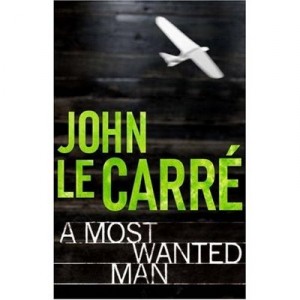In 1950, a man named David Cornwell took up a post with British Intelligence in Austria. He was an intelligence officer in the most real sense – not the glamor of James Bond or the action of Jason Bourne, but the quiet and meticulous tradecraft of the real professional. Cornwell specialized in interrogations, debriefing defectors from over the Iron Curtain, and the occasional bit of breaking and entering.
In the 60s, after bouncing from Austria to Britain and ending up in West Germany, Cornwell turned his eye to writing. He started with a couple of traditional mystery novels – Call for the Dead and A Murder of Quality – which received no great attention. However, as Ian Fleming’s James Bond novels grew in popularity, Cornwell began writing spy novels of his own. Unlike Fleming’s breezy transcontinental jaunts, Cornwell’s novels depicted a spy world full of paranoia, office politics and dark cynicism.
Since he was still a member of the Foreign Office, Cornwell published these novels under a pseudonym: John le Carré.

le Carré has since gone on to become an international bestseller for five decades straight, a defining pillar of the spy fiction genre. The world of his spy novels – the Cambridge “Circus,” the decaying cities along the Iron Curtain – breeds mistrust. The heroes and the villains employ the same methods: turning lovers against each other, sacrificing innocents to lure in key players, and then setting those players up to betray bigger players in turn. And the inhabitants of this world know it.
I bring this up because, for the sunniness of the setting and the winking fun of the tone, Burn Notice tells a remarkably cynical story about the global intelligence community. Michael Westen gets burned, losing his career and a dozen years of employment history, as an opening move in a game too complex for him to see. He relies on his friends to feed false information about him to others, like using Sam in S1 as a double agent against the FBI. He pits bad guys against each other, getting drug dealers and smugglers to murder each other rather than turning them over to the cops. For all the warmth of Miami, Michael lives in a pretty cold world.
And I think this is a deliberate le Carré parallel.
I’ve witnessed an interesting twist on the ex-spy phenomenon. I never directly worked for the government; the closest I ever came to the US govt was subcontractor to DOD. But my life has been shady and complicated enough, that my friends over time realized that I was some kind of spy. When confronted, I’ve had to deny it and convincingly. I’ve done my best. They seemed to resent me for the denial. I can’t tell if a) they believe the denial and they’re annoyed with me for some aspect of that reality, or b) they don’t believe the denial and are annoyed that I won’t share with them.
In Burn Notice, Michael’s predicaments always end happily. My social predicaments, originating from very similar conflicts, go to worse. Being caught in a lie, letting people believe one version of your events (and character, and motives) when the truth is far whiter — these realities are nearly unacceptable. Maybe if I had ‘saved the world’ I’d feel it worthwhile. The best I ever did was give a bunch of analysts more color and flavor and nuance to lose themselves in. I feel like I did something very similar to a junior, second-rate programmer who was assigned to do interior design for a popular video game. Except that coder walked away with bullet points on his resume, and friends who knew he was what he seemed. I had to pose as a shiftless, serial-unemployed loser working well below his capacity, doing jobs like construction, being an extra in movies, working in a theme park or in retail.
The narration and Spy-101 aspects of Burn Notice have always been the biggest draw for me. Even when the in-text circumstances are being sold as dire, there’s usually a great impishness to the tone — it’s as if Ferris Bueller went the Martin Blank route, and learned to adapt his particular skill set for brilliant use in the government cloak & dagger world.
Over at Alan Sepinwall’s blog, several commenters have taken up narrating their lives in the Michael Westen way for the fun of it. “When visiting overthinkingit.com, it’s usually best to read through the entire article before commenting. Unfortunately, when you’re on the run from a shadowy non-governmental organization, sometimes you’ll have to make do with a quick skim…”
Sam Ace is an ex-Navy SEAL. Didn’t work for the FBI. He just has a lot of FBI contacts.
@detail smurfer: huh. I recall that only now that you’ve mentioned it (I think the S1 finale had Michael rifling Sam’s storage unit for a Navy SEAL picture), but I just had him linked in my mind with the FBI for so long.
@stabbim: I think Martin Blank was already pretty far along the Ferris Bueller route (“I killed the President of Paraguay with a fork”), but that’s a really good analogy.